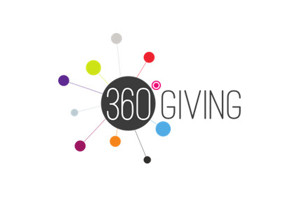Tomorrow is Open Data Day but most charities may not appreciate the relevance of open data to their work or the role it will play in their future.
Data is already letting us address old issues in new ways. For example, Citymapper uses open transport data to tell you exactly when your bus will arrive - so you don’t have to stand in the rain for longer than necessary. Apps such as BreezeoMetre use open data on air pollution, traffic and the weather, so you can see exactly what you’re breathing in and how that compares with other places. And if you want to report an issue to your local council, Fix My Street uses open data, making sure you send the message to the right council about that big pothole at the end of your road.
360Giving is helping funders share their grant making data in an open format so anyone can find out who is funding who, what and how much. By joining the ‘fourth industrial revolution’ powered by data, funders and their grantees can make the most of technology to support and enhance their work.
360Giving was founded in 2015 by a group of like-minded tech and philanthropic organisations frustrated by the lack of timely information about the sector. Seeded with money from Nesta, Indigo Trust and the Big Lottery and with support in kind from Nominet Trust, a standardised way for sharing funding data was created - the 360Giving Open Data Standard.
Shedding light on funding
Fran Perrin, founder of the Indigo Trust, says of her inspiration to establish 360Giving: “When I started out, I wanted to know how I could do as much good as possible with my money – who was already being funded, and how much was going to which causes – so I could target my money with maximum impact. It felt like the sector was funding in the dark.”
In just two years, 72 funding organisations are now helping to shed light on funding by sharing their data in the open, comparable format we have developed, representing over £17bn of grants made to all corners of the UK.
They include central government departments and lottery funders, charitable trusts, community foundations, corporate and family funders and local authorities, and so we are sure that any kind of funder can release their data in this way and help to build the bigger picture of grant making.
City Bridge Trust, London Councils, Birmingham, Trafford and Southwark local authorities, Big Lottery, Sport England, the Ministry of Justice, Comic Relief, BBC Children in Need, Esmee Fairbairn Foundation, Lloyds Bank, Robertson Trust and Henry Smith Charity are among those funders who see the promise of open data in grant making.
It goes beyond transparency and accountability. This open data, when used with the thousands of other open datasets now available, is feeding new tools, platforms, apps, insight and behaviours that will make funding smarter and more impactful.
Already the data is proving useful. We launched GrantNav in September 2016 and now for the first time it is easy to get open, comparable data about funding all in one place. The platform saves days of trawling websites and scraping data to find out who else funds what you fund. In just three clicks it is possible to get information on funding to a place or cause.
And CAST has created Beehive Giving that uses 360Giving open data to intelligently match social impact organisations with the right funders. Being able to check eligibility and see what’s out there before applying can save fundraisers weeks of work. It also means funders get fewer ineligible applications - a problem that the Directory of Social Change estimates cost the UK’s largest trusts seven years of wasted effort in 2010 alone.
Goals
Our ‘moonshot’ goal is to open up 80 per cent of UK grants data by 2020. We are just at the start of this journey and there are some challenges for 2018 if we want to reach our 2020 goal.
1. More data: We would love more lottery funders to follow Big Lottery’s and Sport England’s lead by sharing their data. Ditto for central and local government departments. The richer the data the better insights we will have.
2. More data use: We need to better understand the potential of the data and the different ways it can be used and improved. This means using the data more. Building on our pilot project in Manchester last year, we plan to run another two pilots in 2018, working with like-minded funders to help them identify and address shared issues. We’ve already started a project with the UK Community Foundations and look forward to working with other funder networks in Sussex, Scotland and the North East.
3. More answers: We’re going to launch the second part of our Challenge Fund this year to see how open data can provide answers to the sectors’ burning issues. We’ve already received some great suggestions as part of our Quest for Questions challenge. We’ll be selecting three questions to focus on in 2018, looking at how open data can provide answers to them. If you’d like to work with us to help answer them then contact our labs and learning manager, Mor Rubinstein: [email protected]
If you’re a funder and you haven’t joined what we call the #greatergrantsdata movement, get in touch and find out how easy it is. We provide pro bono support to take the pain out of publishing.
As a sector we cannot shut our eyes to open data - its already changing how we work. So on Open Data Day we ask funders to start to see their data as an important asset that if shared can open up a world of exciting opportunity for the charitable sector.
Rachel Rank is chief executive of 360Giving. Email her: [email protected] or to find out more about publishing your data email [email protected].
Related articles











